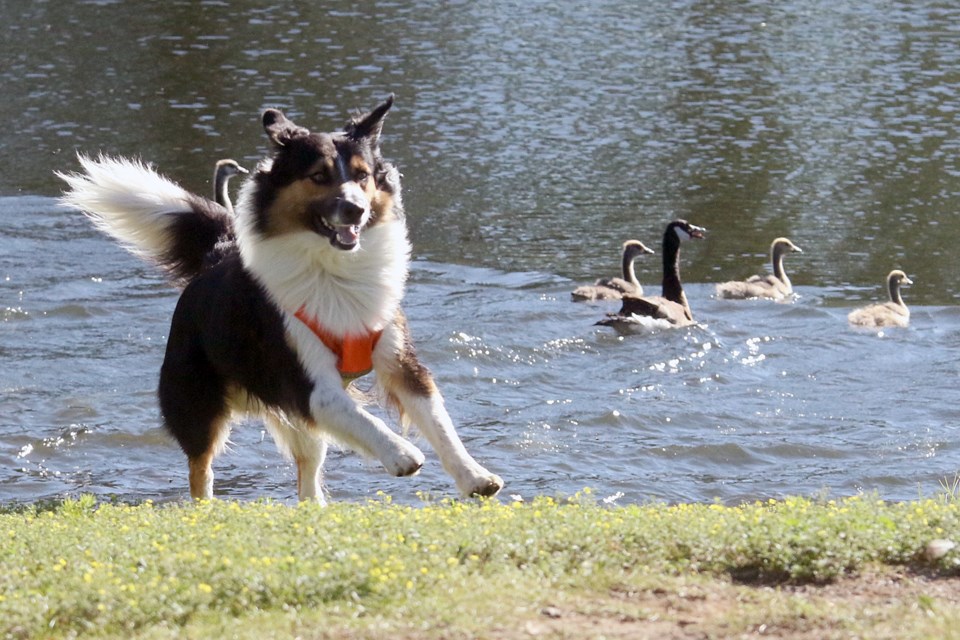THUNDER BAY — Several times a day, starting as early as 6:30 a.m., doghandlers and their canine companions head out to convince Canada geese to stay away from Thunder Bay parks and other public spaces.
Goose poop can be a serious nuisance and a potential hazard to human health.
"Droppings on sand or grass adjacent to the water can be washed into the watercourse following a heavy rain and then increase the level of e-coli in the water," says Werner Schwar, supervisor of Parks and Open Spaces for the City of Thunder Bay.
Teams from Tucker Creek Canine Services of Slate River patrol areas such as Marina Park, Boulevard Lake, golf courses, the grounds of the Health Sciences Centre and Fort William Historical Park.
Canada geese are protected by the federal Migratory Birds Convention Act but the population can be managed in various ways under permit from the Canadian Wildlife Service.
Tanya Wheeler of Tucker Creek has provided dog patrols to the city since 2003, primarily using Australian Shepherds.
She says July is when people will notice more geese and more goose poop than at other times.
"Because this is the flightless stage for the birds...their young have hatched, and we've got goslings all over the place, so the birds are trying to stay put as much as possible," Wheeler said.
The members of her canine corps are trained to harass and frighten, but not to physically harm the geese, and won't take counter-measures if they come under attack themselves.
Pointing to "George" during a media interview Monday at Marina Park, Wheeler said the dog "will walk up over that hill like that and just creep and intimidate. That has a more long-term effect on the birds than (the dog) just running and splashing out there. That is okay, but it's not as effective as dogs that appear to be hunting."
Wheeler, a wildlife biologist, explained that if birds get the sense that they are being hunted, they will not want to nest in that location.
It's not always a foregone conclusion that the birds will succumb to the harassment. In fact, in some instances the dogs could qualify for danger pay.
"We use them to get geese off the nests, so that we can go retrieve the eggs and do the nest removal. The dogs will actually stand right up close and take a fairly good beating from a goose," Wheeler said.
She said several of her dogs have been attacked in the water and have come close to drowning.
Wheeler believes many park users—but not all— appreciate how the dogs go about their work.
"There's a lot of people that know us, they see us out there, they know how valuable the dogs are and they thank us regularly. There's other people that think the dogs are being mean and they worry about them harming the wildlife, which they can't do."
In contrast to environmentally-friendly control programs such as hers, Wheeler said, "there are places in the United States where they are euthanizing thousands of geese at a time, because they are landing in a park this size during migration routes. They are just devastating."
She pointed out that a flock as small as 100 geese eating throughout the night and leaving nearly 1.5 kilos of excrement will cause a lot of damage in an area such as Marina Park, to the point that new sod may have to be laid down.
According to a city official, Thunder Bay spends approximately $40,000 annually on its goose control program, which runs for about six months.
